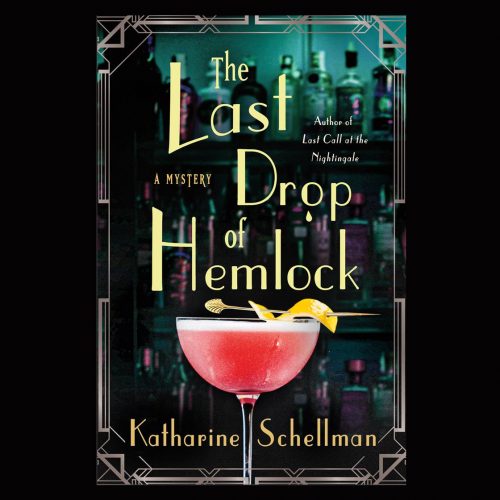 The Last Drop of Hemlock (Nightingale Mysteries, #2) by Katharine Schellman
The Last Drop of Hemlock (Nightingale Mysteries, #2) by Katharine Schellman Narrator: Sara Young
Format: audiobook, eARC
Source: supplied by publisher via NetGalley
Formats available: hardcover, ebook, audiobook
Genres: historical fiction, historical mystery, mystery, thriller
Series: Nightingale Mysteries #2
Pages: 336
Length: 10 hours and 12 minutes
Published by Dreamscape Media, Minotaur Books on June 6, 2023
Purchasing Info: Author's Website, Publisher's Website, Amazon, Barnes & Noble, Kobo, Bookshop.org
Goodreads
In The Last Drop of Hemlock, the dazzling follow up to Last Call at the Nightingale, even a dance can come with a price...The rumor went through the Nightingale like a flood, quietly rising, whispers hovering on lips in pockets of silence.
New York, 1924. Vivian Kelly has gotten a job at the Nightingale, a speakeasy known to the young and fun as a place where the rules of society can be tossed aside for a dance and a drink, and things are finally looking up for her and her sister Florence. They might not be living like queens—still living in a dingy, two-room tenement, still scrimping and saving—but they're confident in keeping a roof over their heads and, every once in a while, there is fried ham for breakfast.
Of course, things were even better before Bea's Uncle Pearlie, the doorman for the Nightingale, was poisoned. Bea has been Vivian's best friend since before she can remember, and though Pearlie's death is ruled a suicide, Bea's sure her uncle wouldn't have killed himself. After all, he had the family to care for . . . and there have been rumors of a mysterious letter writer, blackmailing Vivian's poorest neighbors for their most valuable possessions, threatening poison if they don't comply.
With the Nightingale's dangerously lovely owner, Honor, worried for her employees' safety and Bea determined to prove her Uncle was murdered, Vivian once again finds herself digging through a dead man's past in hopes of stopping a killer.
My Review:
Although it’s not the way the phrase is usually meant, Bea Henry’s wish, actually a downright need, to know what really happened to her suddenly late uncle Pearlie, is a case where she got what she asked for – and wished she’d never opened the can of worms wriggling behind his death.
Not to mention under it, over it, and all around it. Until all that’s left is a dangerous question that her best friend Vivian Kelly truly does not want to know the answer to.
Pearlie was dead, to begin with. With a belly full of arsenic and labeled a suicide by an overworked coroner. But Pearlie was barely middle aged, had just reconnected with his family, had been claiming he was coming into a lot of money and seemed to have everything to live for.
Bea was having a hard enough time believing that her beloved uncle was dead, but suicide was simply out of the question. No matter how things looked, it made no sense. Leading her best friend to want to help her solve a puzzle that no one should have looked twice at.
After all, they were warned.
But Vivian can’t resist either helping a friend or solving a mystery, so she’s off on a seemingly mad quest to discover what really happened, only to uncover a much bigger cockroach skittering around in the dark than she ever imagined.
 Escape Rating B: As I was listening to The Last Drop of Hemlock, I remembered what I wrote about the first book in this series, Last Call at the Nightingale. Specifically, that I liked the book but did not love it – and that is just as true for this second book in the series.
Escape Rating B: As I was listening to The Last Drop of Hemlock, I remembered what I wrote about the first book in this series, Last Call at the Nightingale. Specifically, that I liked the book but did not love it – and that is just as true for this second book in the series.
The historical details of the setting feel absolutely pitch perfect, and utterly true about life in the poverty-stricken areas of Jazz Age New York City where Bea Henry’s black family and the orphaned Irish Kelly sisters live on neighboring blocks but aren’t supposed to acknowledge each other as neighbors, let alone best friends.
While at The Nightingale, the jazz club and speakeasy where Bea ‘Bluebird’ croons to a packed audience and Vivian waits tables and dances whenever she can, they have a place where they can be who they are, owned and operated by a woman who loves other women, seconded by a Chinese bartender who has to be careful every minute he’s outside the club and sometimes even within it.
I had the mixed sensation with this book, as I did with the first, that I was fascinated by the story but frustrated by the characters, and now that I’m two stories in I think that’s down to Vivian herself. The story follows in Vivian’s wake, through a limited perspective where the reader only knows what Vivian knows and only sees what Vivian sees, and we’re not able to see what’s happening when Vivian is not present.
But we do see inside Vivian’s head – albeit not in her “I” voice. So we know what Vivian thinks and feels. And it still feels like Vivian is too naive to be even half as successful as she’s been. She keeps thinking that everything is going to be alright – which it’s not. It’s not that she’s optimistic – it’s that she’s blind and clueless in a life that should have disabused her of that notion long ago.
The Nightingale’s bartender Danny Chin is an optimist – but he’s still realistic about his situation. He’s just decided to look on the bright side wherever he can without losing sight of the dark side that is always there. Vivian does a lot of pretending that dark side isn’t there until it slaps her in the face – particularly when it comes to poking her nose in murder.
So I’m back at liking this but not loving it. Fascinated in many ways but not as engaged as I wanted to be. Certainly the mystery pulled me along quite handily, particularly in the way that I thought I knew ‘whodunnit’ at the halfway point, only to discover at the end that while I kind of did, I also kind of didn’t. And that even at that end, neither I nor Vivian quite knew all of the answers.
I did like this more than enough that I’ll be reading – or more likely listening to – the next in the Nightingale Mysteries whenever the club next opens it doors.

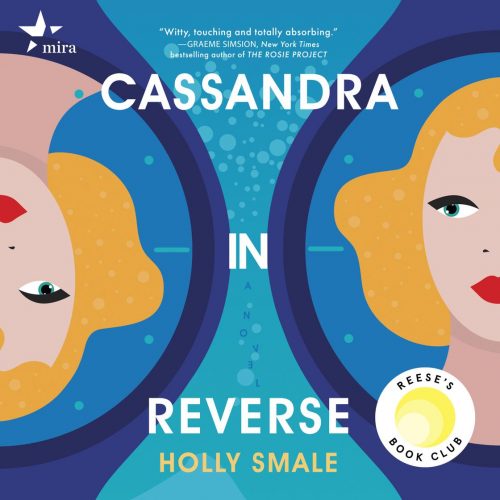 Cassandra in Reverse by
Cassandra in Reverse by 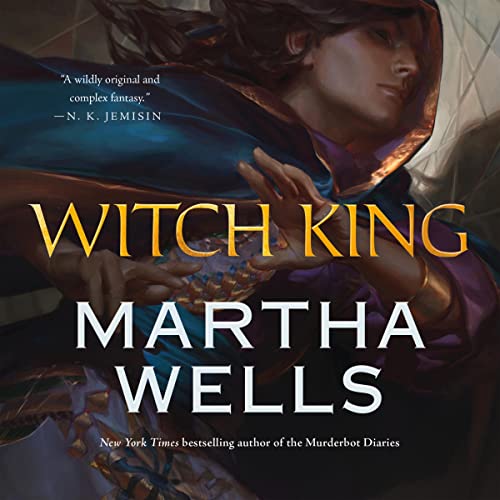 Witch King by
Witch King by  I believe that just how much anyone will like Witch King depends on what you were expecting from it. If you’re looking for more
I believe that just how much anyone will like Witch King depends on what you were expecting from it. If you’re looking for more 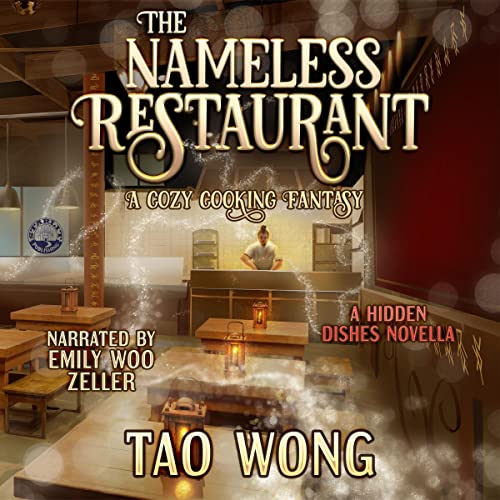 The Nameless Restaurant (Hidden Dishes: Book #1) by
The Nameless Restaurant (Hidden Dishes: Book #1) by 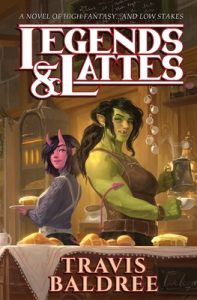 Escape Rating A-: Anyone who loved Travis Baldree’s
Escape Rating A-: Anyone who loved Travis Baldree’s  You Are Here by
You Are Here by 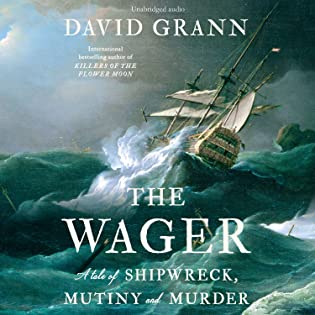 The Wager: A Tale of Shipwreck, Mutiny and Murder by
The Wager: A Tale of Shipwreck, Mutiny and Murder by 
 Big Trouble on Sullivan's Island (Carolina Tales Book 1) by
Big Trouble on Sullivan's Island (Carolina Tales Book 1) by 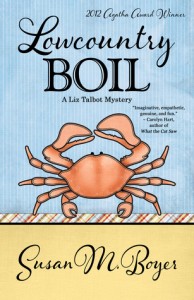 Escape Rating A-: I picked this up because I love the author’s
Escape Rating A-: I picked this up because I love the author’s 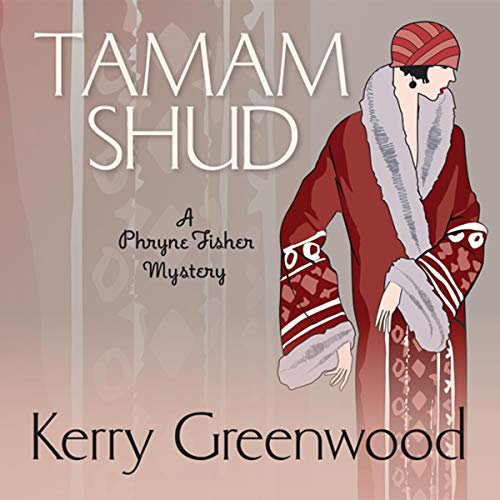 Tamam Shud: A Phryne Fisher Mystery by
Tamam Shud: A Phryne Fisher Mystery by 
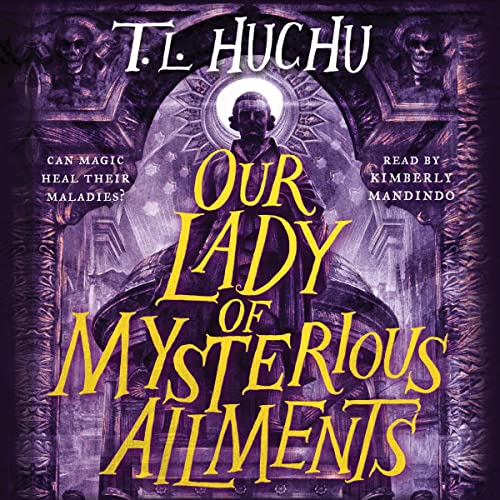 Our Lady of Mysterious Ailments by
Our Lady of Mysterious Ailments by  Escape Rating A+: Our Lady of Mysterious Ailments is just like
Escape Rating A+: Our Lady of Mysterious Ailments is just like 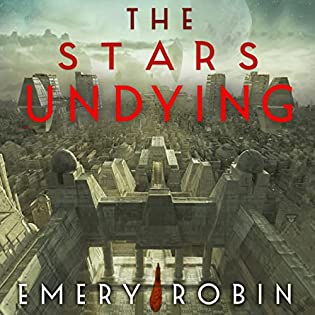 The Stars Undying (Empire Without End, #1) by
The Stars Undying (Empire Without End, #1) by 